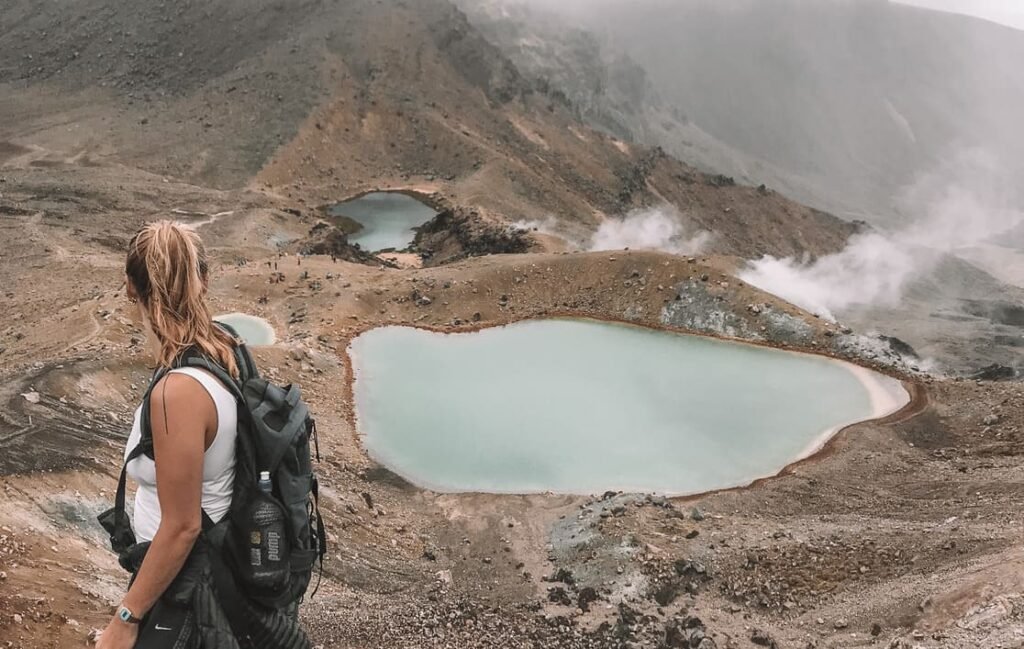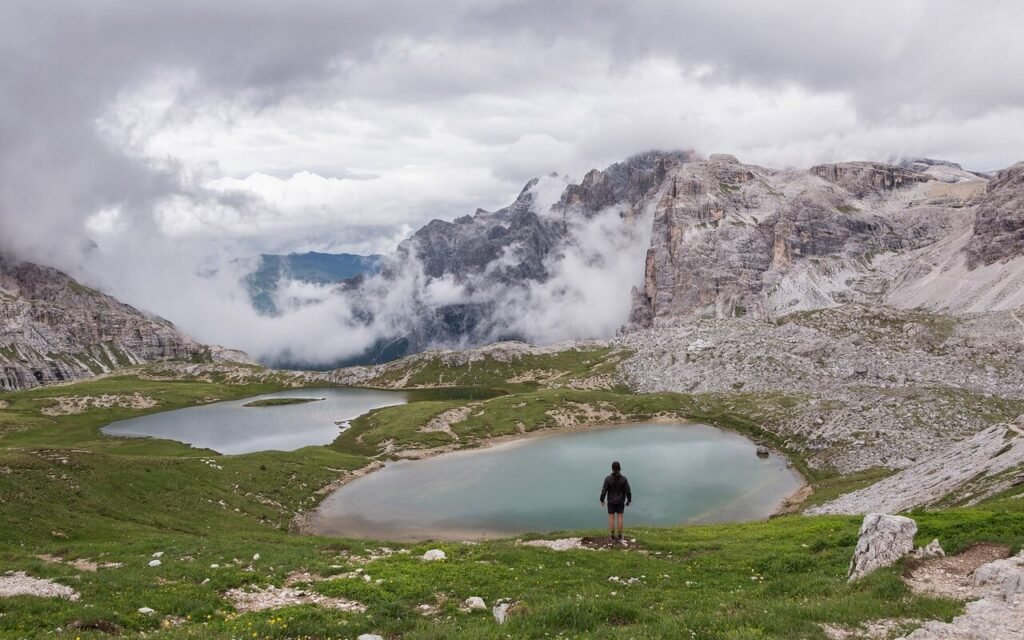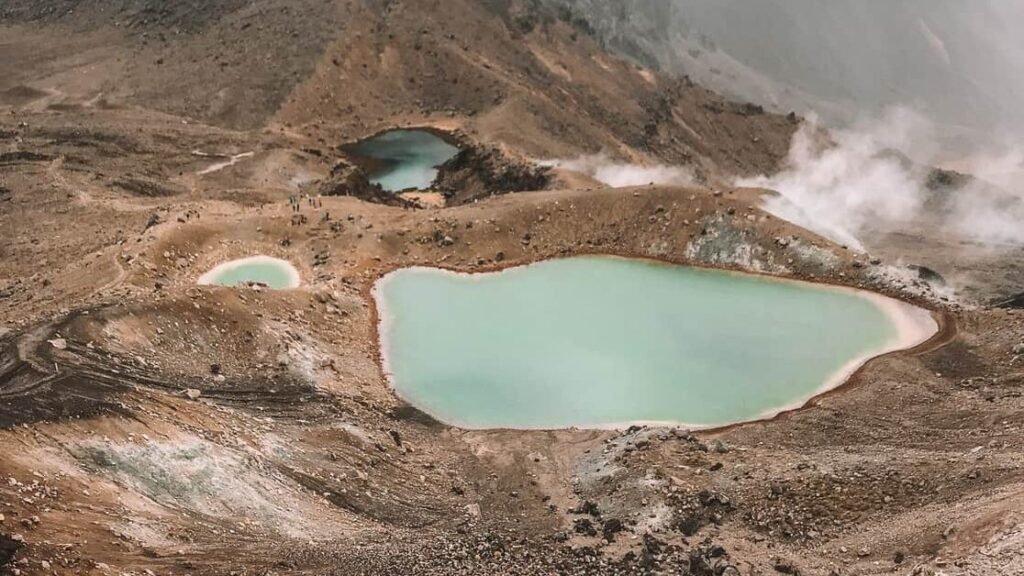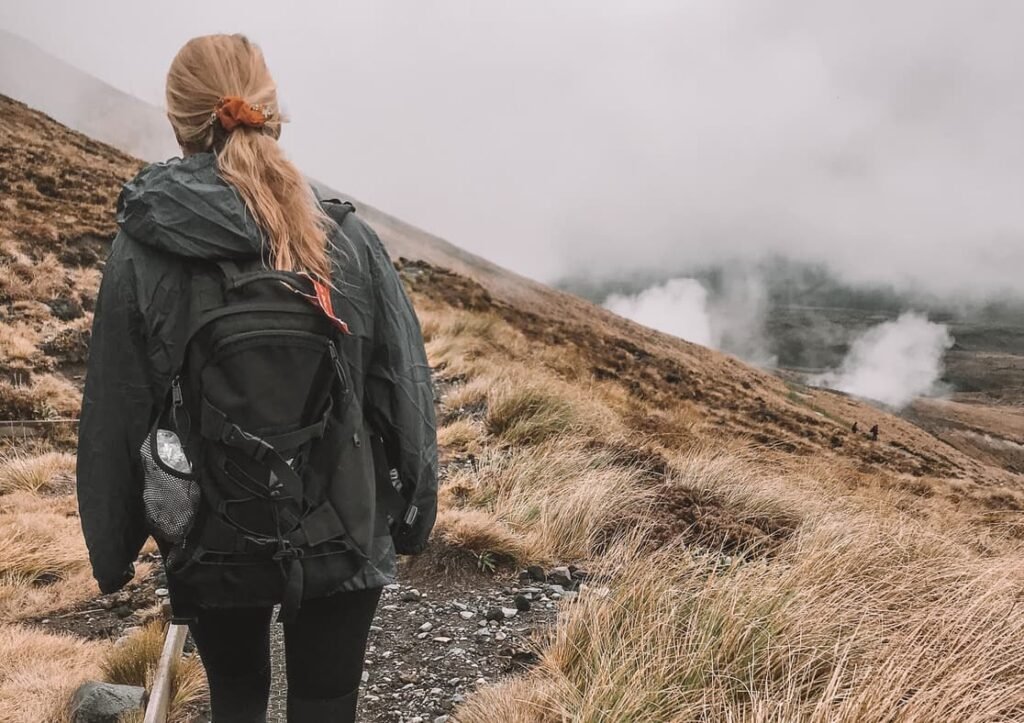Are you thinking of picking up hiking and looking for some hiking essentials for beginners to have a great time?
You’re in the perfect spot!
I’ve had some incredible experiences hiking, from the stunning Tongariro in New Zealand to the beautiful Bukhansan in South Korea, and many other amazing places. Despite these adventures, I still see myself as a bit of a newbie.
When I first started, I had no experience or equipment and learned what to bring hiking the hard way. Over time, I’ve done everything from a short day hike to longer treks like the four-day journey to Machu Picchu. No matter the hike, having the right essentials can make a huge difference!
I’m a big fan of the “less is more” approach and don’t over-plan my treks or carry tons of gear. However, there are a few hiking essentials for beginners that are crucial for a safe and enjoyable hike. These essentials can be lifesavers, especially when you’re out on longer trails.
Whether you’re exploring national parks in North America, taking on the trails in New Zealand, or hiking anywhere in between, this packing list will cover the basics you need for your adventures.
Let’s make sure you’re prepared and ready to enjoy the great outdoors!
What Beginners Should Know About Hiking
Hiking is a fantastic way to explore the great outdoors, and the good news is that it doesn’t have to be an expensive hobby!
At its core, hiking is simply walking in nature, usually on designated trails or paths, for fun and relaxation. Whether you’re tackling beginner trails or aiming for more challenging hikes, preparation is key to ensuring a safe and enjoyable experience.

Next, I’ll share some basic tips on how you can easily prepare for your hiking experience.
Getting Ready for Your Hike
No matter where you plan to hike, whether it’s a local park or a national park, being prepared is essential.
Preparation can make a significant difference in your hiking experience and can even be lifesaving. Here are some crucial steps to get ready for your adventure:
Building Physical Endurance
You don’t need to be an athlete to enjoy hiking, but it’s important to be in good physical condition. The average healthy person should have no trouble on most hikes.
Start with shorter, easier hikes and gradually work your way up to longer hikes with more elevation gain. This way, you’ll build up your endurance and understand your comfort level regarding distance and terrain.
For example, when I first started hiking, I underestimated how challenging some hikes could be due to factors like elevation gain and weather. Experience has taught me that starting with easy trails and gradually increasing difficulty helps build confidence and stamina.
Start slow, and be nice to yourself. It always takes some practice and time to start something new!
Planning and Researching Your Hike
Researching your hike and making a plan is probably the most important preparation step.
By planning ahead, you ensure you have the right gear, know where you’re going, and understand what to expect from the trail. This can make your hike much more enjoyable and safer.
One of the principles of ‘Leave No Trace’ is to plan ahead and prepare. This includes checking trail conditions, weather forecasts, and any regulations for the area you’ll be hiking in.

It’s also wise to have a detailed map and know the location of the trailhead. Avoid relying solely on your GPS, as cell service can be unreliable in remote areas.
There have been times when I arrived at a trailhead only to realize the GPS had led me astray and I had no cell service to correct my course. Another time, I reached the summit of a hike only to find it freezing cold because I hadn’t packed the right gear.
Experiences like these have taught me the importance of thorough preparation.
Hiking Essentials for Beginners I What Should You Bring Hiking?
Getting started with hiking doesn’t have to break the bank. You can find affordable essentials for hiking that are suitable for beginners and they will keep you comfortable and safe whether you’re hiking in warm, cold, or general conditions.
In this section, we’ll cover the essentials you’ll need for different weather scenarios and share some tips for saving money on your gear.
Let’s dive into the hiking essentials that every beginner should consider.
Cold-Weather Hiking Essentials to Bring
Winter hiking gear tends to be more expensive than summer, but there are ways to save money, which we’ll cover later. Skimping on quality cold-weather gear can put you at risk for hypothermia, so it’s important to invest in good stuff.
Here are my top recommendations for budget-conscious winter hiking gear:
- Base Layers: Moisture-wicking base layers are crucial to stay dry and warm.
- Water-Resistant Down Jacket: Keeps you warm without being too bulky.
- Merino Wool Socks: Again, a bit pricey but worth it for the warmth and comfort.
- Insulated Hiking Boots: Keep your feet warm and dry in cold conditions with good hiking shoes.
- Fleece-Lined Beanie: Protects your head and ears from the cold.
- Neck Gaiter: Versatile and can protect your face from wind and cold.
- Waterproof Gloves: Keep your hands warm and dry, essential for cold weather.
By choosing the right hiking essentials and layering appropriately, you can stay comfortable and safe on your hikes, no matter the weather, even for beginners.
Now, let’s look at what to bring for summer hikes or warmer weather.
Warm-Weather Hiking Essentials to Bring
Just because it’s warm at the trailhead doesn’t mean it will stay that way, especially if your hike involves significant elevation gain. Always pack layers to be prepared for temperature changes.
I always keep a lightweight down jacket, gloves, an extra pair of socks, and a beanie in my pack.
Here are my must-have items for hiking in warmer months:
- Sun Shirt: Provides sun protection for your skin from harmful UV rays.
- Rain Jacket: Will be a lifesaver in case of surprise showers.
- Hiking Pants or Shorts: Pants or hiking leggings are better for protecting you from the sun and bugs, but shorts can be more comfortable.
- Hiking socks: These will help with friction and keep blisters away.
- Hiking Boots: Ensure your hiking boots are broken in to prevent blisters.
- Sun Hat: Essential for keeping the sun off your face and neck.
General Hiking Essentials
In addition to weather-specific gear, there are general items that every beginner hiker should have in their pack, regardless of the season:
- Navigation Tools: A detailed map, compass, and GPS device or app to prevent getting lost.
- First Aid Kit: Essential for treating minor injuries and emergencies.
- Trail Mix and Granola Bars: High-energy snacks to keep you fueled.
- Extra Water: Always carry more water than you think you’ll need.
- Multi-Tool: Useful for a variety of tasks and repairs.
- Headlamp or Flashlight: In case you end up hiking after dark.
- Trash Bag: Pack out all your trash to keep the trails clean.
- Natural Bug Spray and Sunscreen: Protect your skin from insects and sunburn without harming the environment.
- Emergency Shelter: A lightweight emergency blanket or bivvy can be a lifesaver in unexpected situations.
Always pack your backpack according to the location, weather, forecast, and duration of your hike. Now, let’s look at some general and money-saving tips for first-time hikers.
Money Saving Tips on Beginners Hiking Essentials
Hiking itself is free, and there are many ways to save money on gear. Over the years, I’ve learned a lot about when it makes sense to spend versus when to treat yourself, and I want to share these tips with you!
- Buy Used Gear and Repurpose What You Have: Check out stores like REI Re/Supply and Patagonia Worn Wear for high-quality used gear. Thrift stores and Facebook Marketplace can also be goldmines for beginner hiking essentials. Sometimes, you can even use the gear you already have at home.
- Watch for Sales: If there’s a specific piece of gear you really want, keep an eye out for sales. Retailers like Salomon, REI, and Colombia often have annual sales where you can score great deals. Patience can pay off!
- Pack Your Lunch: Save money by bringing your own food and drinks. A small cooler can fit in your car and keep your meals fresh, so you don’t need to spend money on the go. Check out my guide on the best hiking lunch ideas.
- Buy a Reusable Water Bottle: Investing in a good water bottle is cost-effective in the long run and helps reduce single-use plastic waste. It’s an essential part of your gear.
- Try Camping: If you need to travel far to reach hiking trails, camping can be a budget-friendly alternative to staying in hotels or Airbnbs.
- Look for Budget Brands: Brands like Decathlon offer affordable yet reliable hiking gear. You don’t always need to buy the most expensive items to get good quality.
- Rent Gear: If you’re just starting and don’t want to commit to buying all the gear, consider renting it. Some outdoor stores and online services offer gear rentals at a fraction of the purchase price.
By following these tips, you can enjoy hiking without breaking the bank. Remember, it’s about the experience and the joy of being outdoors, not how much you spend on gear
Essential Dos and Don’ts for First-Time Hikers

Starting your hiking journey can be exciting and rewarding. To help you have a safe and enjoyable experience, here are some essential dos and don’ts for a beginner hiker:
Do: Have Fun
Don’t: Throw Garbage
Do: Stay on Marked Trails
Don’t: Disturb Wildlife
Do: Bring a Map and Compass
Don’t: Rely Solely on Your Phone
Do: Pack Enough Water and Snacks
Don’t: Overpack
Do: Check the Weather Forecast
Don’t: Hike Alone Without Telling Someone
Do: Wear Comfortable and Appropriate Footwear
Don’t: Wear Cotton Clothing
Do: Respect Other Hikers
Don’t: Play Loud Music
By following these simple dos and don’ts, you’ll ensure a great first hiking experience while respecting nature and other trail users.
Top Resources for First-Time Hikers
Here are some of the best apps and websites to help beginner hikers plan their adventures and stay safe on the trails:
- AllTrails: A comprehensive app and website with trail maps, user reviews, and difficulty ratings.
- Gaia GPS: A GPS navigation app with detailed topographic maps, perfect for planning and tracking your hikes.
- Hiking Project: A resource by REI that offers trail guides and maps, created and reviewed by the hiking community.
- Outdooractive: An app and website providing trail maps, guides, and tips for various outdoor activities, including hiking.
- TrailLink: A resource for finding trails, complete with maps, photos, and user reviews.
- National Park Service: Offers detailed information on trails, conditions, and safety tips for hiking in U.S. national parks.
- Hipcamp: A website for finding and booking campsites, perfect for planning hiking trips that include overnight stays.
- Leave No Trace: A website providing guidelines and principles for minimizing your impact on nature while hiking.
- Mountain Weather: An app offering weather forecasts specifically for mountainous areas, helping you prepare for changing conditions.
- First Aid by American Red Cross: An app that provides basic first aid instructions and emergency information.
These resources will help you plan your hikes, stay safe, and make the most of your outdoor adventures.
Conclusion
I hope this guide has been helpful for both beginners and seasoned hikers. Remember, hiking is as flexible as you want it to be. Start with easy, scenic trails if you’re just getting into hiking, and gradually work your way up to more challenging adventures.
Hiking is a fantastic way to spend a day, offering fresh air, exercise, and the joy of exploring nature. It has become a cherished part of my travel activities, providing countless memorable experiences.
That wraps up our hiking essentials for beginners. I hope you now feel prepared and confident about what to bring on your next hike. If you liked this article, make sure to read:
- Best Hiking Backpack for Women | Ultralight & Great Picks
- The Kasol Kheerganga Trek | A Himalayan Adventure Worth Taking
- Sandhan Valley Trek & Camping | A Must for Adventure Enthusiasts
- Best 8-Person Tent | Top Picks For Camping Adventures
Feel free to leave a comment below with any questions or tips of your own. Happy hiking!
//Josephine

A very informative article for hiking lovers and adventurers. You are doing great.
Thank you! Hope you got some good tips 🙂